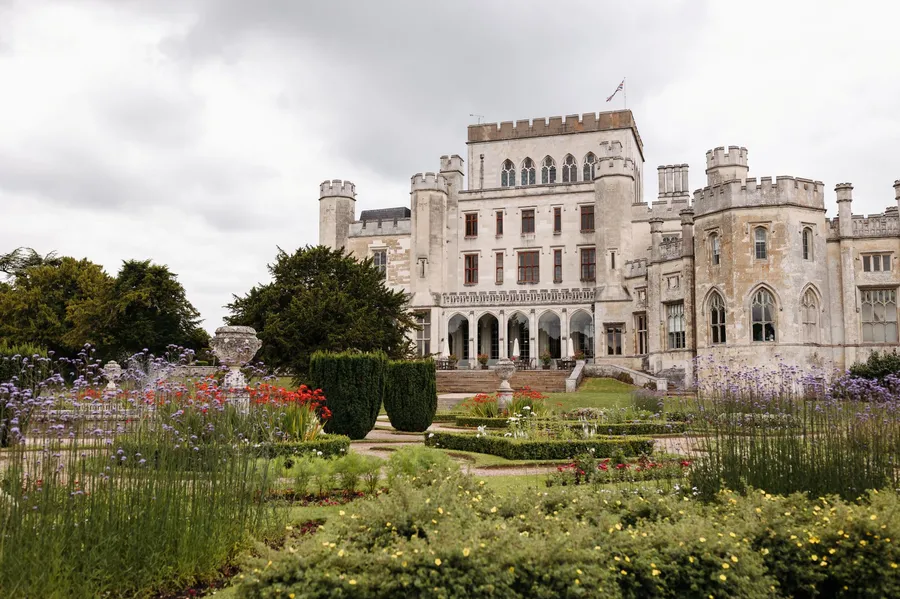RHS Partner Garden
The Grade II* registered gardens of Ashridge House were recently named a RHS Partner Garden, meaning RHS Members can have free access to the Ashridge House gardens throughout the year. Zora joined Ashridge House as Head Gardener ten years ago, after a long career working in horticulture, and says the position - and the partnership - is a dream come true.
“From visiting heritage properties as a child I've always loved large historic estates. As it is on my doorstep, I have visited Ashridge many times over the years, and it was my dream job to work in the gardens one day.
“To be a RHS Partner Garden is such an honour. I'm so proud of the work my team does and having it recognised by the RHS means so much. Ashridge Gardens are steeped in history and have something for everyone with year-round interest so RHS members can really maximise their membership.
“Ashridge has been a hidden gem for years and being a RHS partner garden means that so many more people can enjoy the gardens.”
Zora Tyrone, Head Gardener at Ashridge House
5 Reasons to visit Ashridge House and Gardens
Zora says that they see a huge number of repeat visits because there are so many benefits to spending time in managed gardens like those at Ashridge House.
1. Learn about gardening
“There is something different in flower every month,” says Zora. “Gardeners can discover different flowers and plants, and new and interesting combinations to try at home. The team at Ashridge are happy to share tips and advice for visitors who are curious.”
2. Reconnect with nature
“The Italian Garden is always popular, with its central pond and fountain. There's something very relaxing about the sound of water and watching the fish. Our gardens are great for stopping and listening to the birds, too. The space is ideal for those needing to take time off to relax, recharge and reconnect.”
3. Family days out
“I think visitors enjoy the sheer size, with 190 acres to explore you can easily make a day of it with a bite to eat in the cafe. Being dog friendly means the whole family really is welcome. Plus, you can get your steps in without realising how many you've done!”
4. Historic interest
“Those interested in Garden history can also see a fine example of Repton's work. Humphry Repton designed the gardens in 1813, but died in 1816 so never saw his plans realised. He designed 15 gardens within the grounds, but interestingly only the Rose Garden is in the place Repton proposed.”
5. Hands-on conservation
Ashridge House also welcomes volunteers interested in learning more about the team’s dedication to conservation and sustainability of our natural environment. Working alongside the gardening team, volunteers can help tend to the historic gardens and grounds. The team hosts a plant fair annually to sell plants that are lovingly grown by the gardens team volunteers throughout the year.
Managing pests
As a RHS Partner Garden, Zora says that following RHS guidance on weed and pest control means that striving for perfection across the 190 acres site is hard to achieve, but manageable when working with nature rather than against it. Sustainability and increasing biodiversity is at the heart of how Zora and the team manage the garden’s pests.
“We use very little in the way of herbicides and pesticides. This does mean that we have a few weeds in some places and some of our plants have been feasted on by bugs, but working with nature rather than attempting to control it is so important.
“There are a number of natural ways to deal with garden pests, used coffee grounds and eggshells are the ones that get the most airtime,” says Zora. “Slugs and ants hate them, so it’s great for small gardens. Copper tape or beer traps are also worth a go - great for home gardens, but for large gardens like ours, we have to think bigger! We use nematodes to control the slugs in our veg and herb beds.
“We have a significant amount of box hedging and so the box tree caterpillar is a real worry. We now use synthetic pheromones to manage the risk of them destroying our plants, and it's working really well. Basically the pheromones mimic the scent of potential mates for the moths so that they get so overwhelmed by the thought of the opportunities to mate that they don't do anything to the plants.
“Certain flowers are naturally pest-repelling too,” says Zora. “Growing these around garden beds or borders can help to keep pests away organically. Lavender will repel mosquitoes, moths and flies while marigolds will take care of whiteflies and aphids.
“Herbs are great natural repellents too. Basil, mint, rosemary, thyme and garlic will all help to keep pesty bugs off your garden.
“When it comes to weeds, hoeing is something we find we are doing more and more to control those growing both in the gravel paths as well as the flower bed. It is so much better for the environment than spraying herbicides.”
For more information on Ashridge House and Gardens, please visit: www.ashridgehouse.org.uk/visit-us/gardens/



